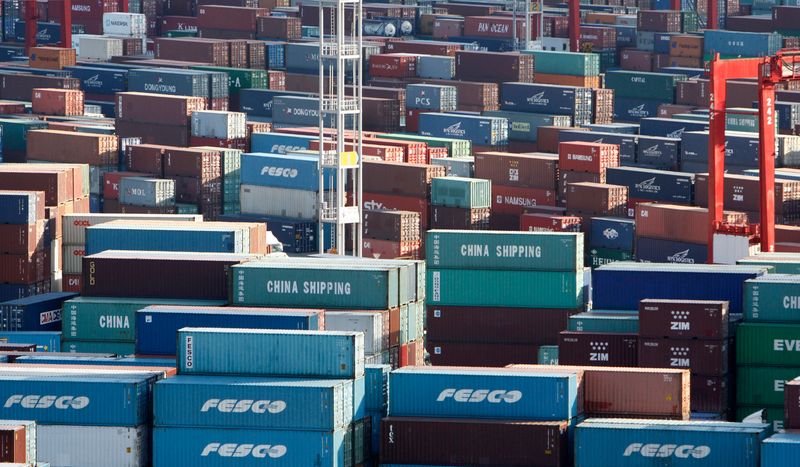SEOUL (Reuters) - South Korea's factory activity returned to growth in December, snapping seven straight months of contraction, helped by improving demand, especially from abroad, a private business survey showed on Thursday.
The Nikkei/Markit purchasing managers' index (PMI) in December rose to 50.1, from 49.4 in November.
It stood just above the 50-point level that separates growth from contraction and was the highest reading since April, when it marginally stood above the threshold at 50.2.
Manufacturing output expanded for the first time in 14 months, helped by new product launches and general boost in demand conditions, the survey showed.
New export orders index jumped to 51.3 in December, from 49.9 in the previous month and the highest reading since June 2018. Panellists reported greater sales to Asian markets such as Japan, China and Vietnam.
Total new orders, which snapped a 13th month of contraction, rose to 50.7, on stronger overall demand and penetration into new overseas markets.
"Perhaps most important was growth in overseas demand, the strongest increase in foreign workloads since mid-2018," IHS Markit economist Joe Hayes said.
"Sustained growth in exports will be key to ensuring that South Korea's manufacturing sector can positively contribute to overall economic output," Hayes added.
South Korean exports in the first 20 days of December slid 2.0% on-year in value, marking the slowest fall in a year, as recovery in demand from China and stabilizing chip prices offered signs that a year-long run of declines may be nearing its end.
Unlike most sub-indexes where overall improvements were spotted, the pace of job losses accelerated to 47.5 in December, from 49.4 a month earlier. The contraction, the fastest since May 2018, extended the streak into an eight consecutive month, though this had little impact on work efficiency as backlogs of work were also reduced during the month.

The PMI survey showed business sentiment for the next 12 months was cheered by optimism on greater demand in new products and hopes for the trend in the global manufacturing industry to pick up.